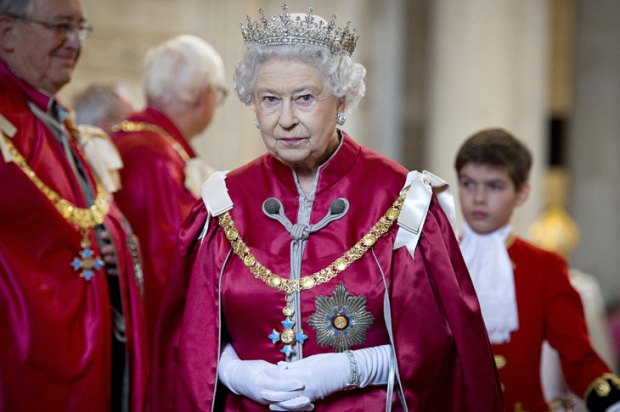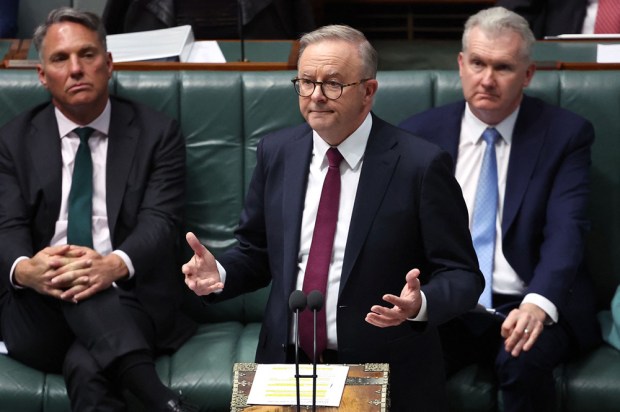It is always easier to divide a nation than to unite it. It was divisive to force devolution onto the Scots, just as it is to commandeer over $4 billion of the GST paid this year by Western Australians.
When the union with Scotland was finally achieved in 1707, the London based government left the Scots free to run their own lives. It was no coincidence that this was followed by the Scottish Enlightenment, that unique outpouring of intellectual and scientific accomplishments which swept across the world. Or that the Scots would punch well above their weight for so long in the good governance of the largest empire the world has ever seen
As for Australia, we seriously risked becoming several countries instead of one, just like South America. The federation project was only saved by taking it away from the politicians and handing it to the people. Such is our education today that the man principally responsible for this, Sir John Quick, is almost unknown.
One of the particular problems with modern career politicians is that if you don’t keep them under control, before you know it you have an infestation. This has happened with Scottish devolution; with forcing self government on the ACT; and with pointlessly increasing the size of the Senate. Left underemployed, politicians can develop elevated views of themselves. Just as the Rudd government spent billions to buy a temporary vanity pulpit on the Security Council, so Scottish politicians push independence so they can tread the world stage as equals with presidents and prime ministers. Similarly, Ted Heath hid the real consequences of common market membership from the people so he could squeeze into the cockpit of Europe, without realizing the French and Germans were never going to make room for him. Even some aldermen play at foreign policy instead of collecting the garbage.
The Scottish mess was Labour’s idea, and they have now received their just reward – an SNP wipe-out. Not that David Cameron brought credit on himself in allowing the independence ‘referendum’. This was nothing more than a blank cheque plebiscite, a favourite tool of the two Napoleons.
Why didn’t he do what we do in our Australian referendums, where all the changes are on the table before we vote and not decided after? Voters across the UK (and not just Scotland) should have been told before the vote what would happen to the currency, the national debt, the armed services, the nuclear submarine fleet, membership of the EU, the permanent seat on the Security Council, NATO, offshore resources, territories etc.
While the politicians are to blame for the situation in the UK, Australia’s constitutional mess began with judicial activism when Sir Isaac Isaacs was able to do as a judge what he was unable to do as a delegate to the 19th century constitutional convention, centralise power in Canberra. This eventually led to the Commonwealth cornering a swathe of taxes with the states eventually powerless even to tax goods and services.
As we know, John Howard put his government on the line by going to the 1998 election promising to impose a GST with the proceeds going to the states. This was a brave move, but there were two serious faults in the design of the new tax. First, applying ‘Horizontal Fiscal Equalization’ so that the worst state governments are subsidised by the most efficient. The theory is that governments should all be able to provide ‘general government infrastructure and services’. But there is no way of ensuring this is being achieved. Common sense would tell you that a bad government should be answerable to its electorate, not subsidised by Western Australians. If a state government has serious financial problems, the constitution provides that the Commonwealth ( and not Western Australians) can help with a section 96 federal grant. The Commonwealth can put conditions on the grant to require the state government to cure the underlying problem.
Making the people of WA use their hard earned money to fix up the mess created by another states’ government offends the primary rule about taxation in a federation. Best explained by the US Founding Father Alexander Hamilton, this is that ‘individual States should possess an independent and uncontrollable authority to raise their own revenues for the supply of their own wants.’
There was a second fundamental fault in the new tax, another sleight of hand. Constitutionally, the territories are the sole responsibility of the Commonwealth with the power to overrule their laws and change their constitutions. But with the GST, the Commonwealth sneakily transferred its responsibilities for its territories to the states. All this explains the ludicrous situation where Western Australians receive 30 cents in every dollar of GST collected while the very affluent ACT gets a generous bonus, $1.10, Tasmania almost double, $1.82, and the Northern Territory an unbelievable $5.57 for every dollar collected. And who pays for this? Western Australians do.
Tony Abbott has done well to grant WA $600 million extra for infrastructure, a sensible interim measure. The fact is that each state should get all of the GST collected in that state, and the Commonwealth assume responsibility for the territories. If a state believes it needs assistance it should have to put up a case to the Commonwealth and not lean on WA to make up the difference. This is not the way to run a federation. If this continues, Western Australians, who are a tolerant lot, may begin to wonder just why they are subsidising goverments who are not doing their job. There may well be voices raised proposing that there be a more effective version of the campaign which led to the plebiscite in the ‘30s when well over 60 per cent of Western Australians voted to leave the Commonwealth.
Apart from the defence of the nation and borders, the first duty of central politicians should be to maintain the unity of the country. Both British and Australian politicians have mishandled this badly. It’s time we had a constitutional convention here to clean up this mess, just as we had a convention to achieve federation.
One matter if the UK were to break up. Why not offer a home in Australia for the Trident submarine fleet? We would then have an effective submarine fleet here, and one seriously armed.
Got something to add? Join the discussion and comment below.
Get 10 issues for just $10
Subscribe to The Spectator Australia today for the next 10 magazine issues, plus full online access, for just $10.
You might disagree with half of it, but you’ll enjoy reading all of it. Try your first month for free, then just $2 a week for the remainder of your first year.













Comments
Don't miss out
Join the conversation with other Spectator Australia readers. Subscribe to leave a comment.
SUBSCRIBEAlready a subscriber? Log in